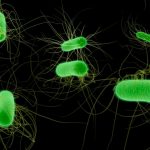A paper in the January 2017 edition of Nature Ecology & Evolution states that antibiotic-resistant bacteria grow faster and more efficiently than those that are not resistant to antibiotics. That is bad news in the fight against this deadly threat. Antibiotic resistant bacteria develop when the organisms are exposed to antibiotics. The drugs kill most of the bacteria, but some survive. And those that survive develop resistance to the drugs. Worse, they can pass that resistance on to other bacteria. The scientist from the University of Exeter were studying how E. coli bacteria develop resistance to antibiotics. In the study, they exposed the bacteria to doxycycline, a common antibiotic for treating infections. The bacteria quickly developed mutations for doxycycline … [Read more...]
Shrimp Lovers: High Antibiotic Levels and Origin Cause for Concern
Do you know where that shrimp in your freezer or on the plate in your favorite restaurant came from? And do you know what's in it? Research in the last few years has found that antibiotic use in shrimp farming, especially in Asia, could pose a serious threat to public health. A study in 2003 published in the International Journal of Food Science and Technology, titled "Antibiotic use in shrimp farming and implications for environmental impacts and human health" brought up the subject. It stated that antibiotics are used in shrimp farming to prevent or treat disease outbreaks, just as they are used on factory farms, but usage patterns were unknown. That study was conducted along the coast of Thailand, which was the world's largest producer of cultured shrimp until China took that … [Read more...]
Antibiotic Resistant Salmonella Causes 6,200 Illnesses Every Year
The Centers for Disease Control and Prevention (CDC) published a new report on the incidence of antibiotic-resistant Salmonella infections in the United States. Every year, about 6,200 people are sickened with these strains of antibiotic bacteria, but non-resistant Salmonella bacteria cause about 1.2 million illnesses every year in this country. Salmonella infections are one of the most common types of foodborne illness in this country and around the world. The antibiotics usually used to treat these infections include ceftriaxone, ciprofloxacin, and ampicillin. Unfortunately, antibiotic resistance has been associated with these drugs. Scientists at the CDC used Bayesian hierarchical models of 2004 - 2012 date from the CDC National Antimicrobial Resistance Monitoring System … [Read more...]
Study Finds 24% of UK Chicken Has Antibiotic-Resistant E. coli Bacteria
A study conducted at Cambridge University found antibiotic-resistant E. coli bacteria on 24% of chicken samples taken from the seven largest supermarkets in the United Kingdom, according to the Center for Infectious Disease Research and Policy at the University of Minnesota (CIDRAP). That is more than four times higher than results obtained in another study conducted in 2015. Resistance was "frequently found to three families of antibiotics that are particularly important for treating human E. coli urinary-tract and blood-poisoning infections," according to the study. The study was commissioned by the Alliance to Save Our Antibiotics, an organization in England that is dedicated to reducing the prevalence of antibiotic-resistant bacteria in our food supply. Scientists analyzed 189 … [Read more...]
FDA Says No Antimicrobial Agents in Over the Counter Soaps
On every story we have written over the past five years about food poisoning outbreaks, we follow the FDA's advice: after handling potentially contaminated products, wash your hands thoroughly with soap and water. That's the best way to remove pathogenic bacteria and viruses from your hands and prevent the spread of illness. Now the FDA is telling soap manufacturers that they can no longer use certain antimicrobial ingredients when making over-the-counter soaps. There isn't enough science to show that these soaps are better at preventing illness than plain soap and water, and manufacturers have not established that the ingredients in those soaps are safe long term. Manufacturers have one year to comply with this rule. In 2013, the FDA issued a proposed rule requiring that … [Read more...]
Drug Resistance in One Salmonella Strain Grows; Others Remain Low
Findings from the National Antimicrobial Resistance Monitoring System (NARMS) has found that overall drug resistance in Salmonella bacteria is low, except for one serotype. NARMS is a partnership between the CDC, the FDA, the USDA, and state and local health departments, that tracks antibiotic resistance in bacteria that cause human disease and are transmitted commonly through food. The report states that overall, antibiotic resistance in Salmonella bacteria is low, but multidrug resistance in one serotype is increasing. Multidrug resistance in Salmonella is 9.3%, a bit higher than the 2009-2013 average of 9%, but down from 11% in the 2004-2008 report. Resistance to one of the drugs used to treat severe Salmonella infections, ceftriaxone, dropped from 3% to 2%. But multidrug … [Read more...]
CDC Spending $67 Million to Fight Antibiotic Resistance
The Centers for Disease Control and Prevention is going to spend $67,000,000 to help fight the development of antibiotic-resistant bacteria. That money will go to health departments across the country in all 50 states and Puerto Rico, and to local health departments in six major cities. Those six cities include New York City, Houston, Chicago, D.C., Los Angeles, and Philadelphia. The money will be available to jurisdictions starting today, August 1, 2016. That money will help labs test for multidrug-resistant bacteria and will aid in whole genome sequencing (WGS) of Salmonella, Shigella, and other intestinal bacteria. Officials hope that this funding and new testing will help the government respond more quickly to food poisoning outbreaks. That funding will also help support seven … [Read more...]
Antibiotic Resistant Bacteria Found in Florida Sewage
According to the Center for Infectious Disease Research and Policy (CIDRAP) at the University of Minnesota, antibiotic resistant bacteria has been found in Florida sewage. The bacteria was discovered in samples taken from water and sediment after a 2014 sewer-line spill that released 500,000 gallons of untreated wastewater into a St. Petersburg neighborhood. This information was published in Applied and Environmental Microbiology. The bacteria, Enterococcus faecium, is resistant to vancomycin, one of the "last resort" antibiotics we have to fight serious infections. That antibiotic has not been used for years because it has toxic side effects. But since more and more antibiotics are becoming less effective against infections, it is being brought back. And that vancomycin-resistant … [Read more...]
FDA to Tighten Labels and Marketing of Animal Antibiotics
Recently, an antibiotic-resistant superbug called MCR-1 has been found in two people and two pigs in the United States, and it was just found in the water in Rio de Janeiro. Brazilian scientists discovered a drug-resistant bacteria off the coast of one of the city's beaches, one month before the Summer Olympics starts. Giving antibiotics to food animals at sub-therapeutic doses is one way that these superbugs evolve. The MCR-1 resistance gene makes the last-line antibiotic colistin useless. The gene has been found in other bacteria in other countries. Since this gene can be transferred to other organisms, scientists are very worried. So the FDA is planning to tighten labels and marketing options for antibiotics intended for animal use. That agency sent a letter to animal drug … [Read more...]
Minnesota Agencies Reveal Plan to Fight Antibiotic Resistance
Four agencies in Minnesota have launched a five year plan to fight antibiotic resistance. The partners are in public health, health care, agribusiness, and environmental protection. They are the Minnesota Department of Health, Minnesota Department of Agriculture, Board of Animal Health, and Minnesota Pollution Control Agency. They will work together to "promote judicious antibiotic use and stewardship in order to reduce the impact of resistant bacteria." The widespread use of antibiotics over the past few decades has caused an alarming increase in antibiotic-resistant infections. Bacteria are able to develop resistance to antibiotics through natural selection. While the effectiveness of medically important antibiotics has been decreasing, the rate of antibiotic resistant bacteria … [Read more...]













